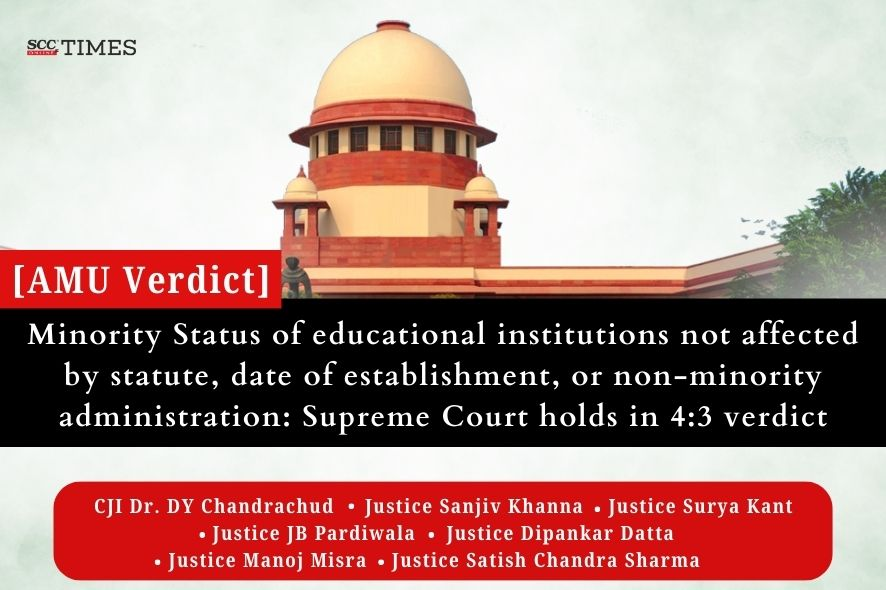Supreme Court Upholds Minority Status for AMU Institutions
Why in the news?
The Supreme Court ruled that legal recognition doesn’t strip minority institutions of their status, revisiting AMU’s minority status and overturning a 1967 judgement impacting similar institutions.
About Supreme Court Judgment on Minority Institution Recognition:
- The Supreme Court’s seven-judge Bench, in a 4:3 majority judgement led by Chief Justice D.Y. Chandrachud, ruled that an educational institution established by a minority community does not lose its minority identity upon legal recognition.
- The court reviewed petitions concerning the minority status of Aligarh Muslim University (AMU) and ruled that while institutions established by minority communities are minority institutions, the community must prove that the institution preserves their cultural heritage.
- Justices Surya Kant, Dipankar Datta, and S.C. Sharma dissented, and the case was referred to a regular Bench for further examination of AMU’s minority status.
Overturning the 1967 Azeez Basha Ruling:
- The court’s decision overruled the 1967 Azeez Basha judgement, which held that AMU, as a central university, could not be considered a minority institution.
- The 1967 ruling suggested that religious minorities could not claim rights under Article 30(1) to administer institutions not established by them, but the new verdict extends Article 30 protections to secular educational institutions established by minorities.
- This reversal affects other minority institutions like St. Stephen’s College and Christian Medical College, which rely on Article 30 to secure their minority status.
Key Highlights of the Judgment:
- The Chief Justice emphasised that Article 30(1) serves as both an anti-discriminatory and special rights provision for religious and linguistic minorities, ensuring greater autonomy.
- The court clarified that minority institutions, even those established before the Constitution, retain their status as long as they are predominantly meant for the community’s benefit.
- Although state regulation is permissible, it should not infringe upon the institution’s minority character.
Sources Referred:
PIB, The Hindu, Indian Express, Hindustan Times




